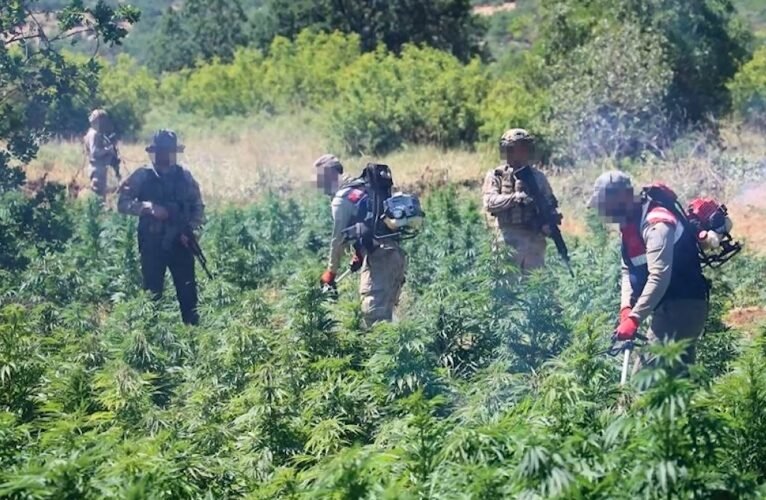In a significant operation, Turkish security forces have seized over 3,000 cannabis plants at the Hevsel Gardens, a UNESCO World Heritage site in Diyarbakır. The discovery highlights ongoing challenges in combating illegal drug cultivation in protected areas. The operation resulted in the destruction of 3,267 cannabis plants, which could have produced approximately 800 kilograms of narcotics. This incident underscores the persistent issue of illicit cultivation despite previous eradication efforts.
Discovery and Seizure
Security forces conducted a meticulous operation in the Hevsel Gardens, uncovering a substantial number of cannabis plants. The gardens, known for their rich biodiversity and historical significance, were found to harbor 3,267 cannabis plants. These plants were identified as part of an ongoing effort to monitor and eliminate illegal drug cultivation in the region. The operation was a coordinated effort involving multiple security units, ensuring the thorough identification and destruction of the plants.
The seized cannabis plants were immediately incinerated on-site to prevent any potential misuse. This swift action was crucial in ensuring that the narcotics did not enter the illegal drug market. The operation’s success is attributed to the diligent surveillance and intelligence-gathering efforts by the anti-narcotics units in Diyarbakır. Despite these efforts, the persistence of illegal cultivation in such a protected area raises concerns about the effectiveness of current measures.

The Hevsel Gardens, spanning approximately 700 hectares, are not only a historical site but also a vital ecological zone. The presence of illegal cannabis cultivation in this area poses a threat to both its ecological balance and cultural heritage. The authorities are now focusing on enhancing surveillance and implementing stricter measures to prevent future incidents.
Historical Context and Previous Operations
The Hevsel Gardens have a long history of being targeted for illegal cannabis cultivation. In May 2016, security forces eradicated 500,000 cannabis plants in a major operation. This was followed by another significant operation in May 2017, which resulted in the destruction of 23,000 plants. These operations highlight the ongoing battle against illegal drug cultivation in the region.
Despite these efforts, the recurrence of such incidents indicates a persistent challenge. The fertile land and strategic location of the Hevsel Gardens make it an attractive site for illegal activities. The authorities have been continuously working to address this issue through increased surveillance and community engagement. However, the recent discovery suggests that more robust measures are needed to effectively combat this problem.
The historical significance of the Hevsel Gardens adds another layer of complexity to the issue. As a UNESCO World Heritage site, the gardens are protected under international law, making any illegal activity within its boundaries a serious offense. The authorities are now exploring additional legal and technological measures to safeguard this important site.
Future Measures and Community Involvement
In response to the recent discovery, the authorities are planning to implement more stringent measures to prevent illegal cultivation in the Hevsel Gardens. This includes the use of advanced surveillance technologies and increased patrolling by security forces. The goal is to create a more secure environment that deters illegal activities and preserves the site’s ecological and cultural integrity.
Community involvement is also seen as a crucial element in addressing this issue. Local residents and stakeholders are being encouraged to participate in monitoring and reporting any suspicious activities. Educational programs are being planned to raise awareness about the importance of protecting the Hevsel Gardens and the legal consequences of illegal cultivation.
The authorities are also considering collaborations with international organizations to enhance their efforts. By leveraging global expertise and resources, they aim to develop more effective strategies for combating illegal drug cultivation. The recent operation serves as a reminder of the ongoing challenges and the need for continuous vigilance and innovation in addressing this issue.




